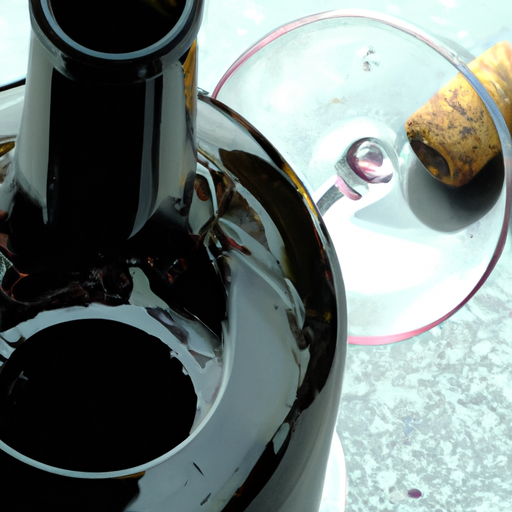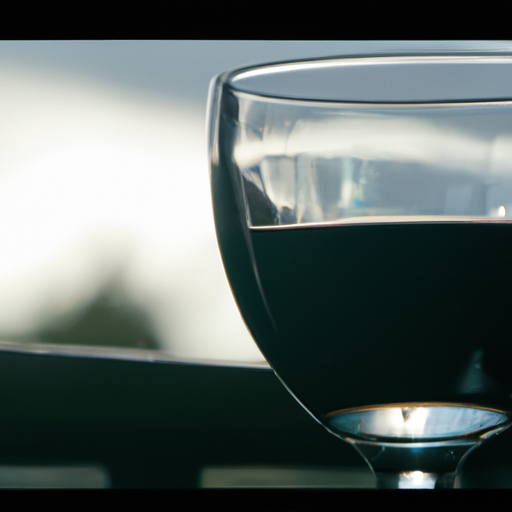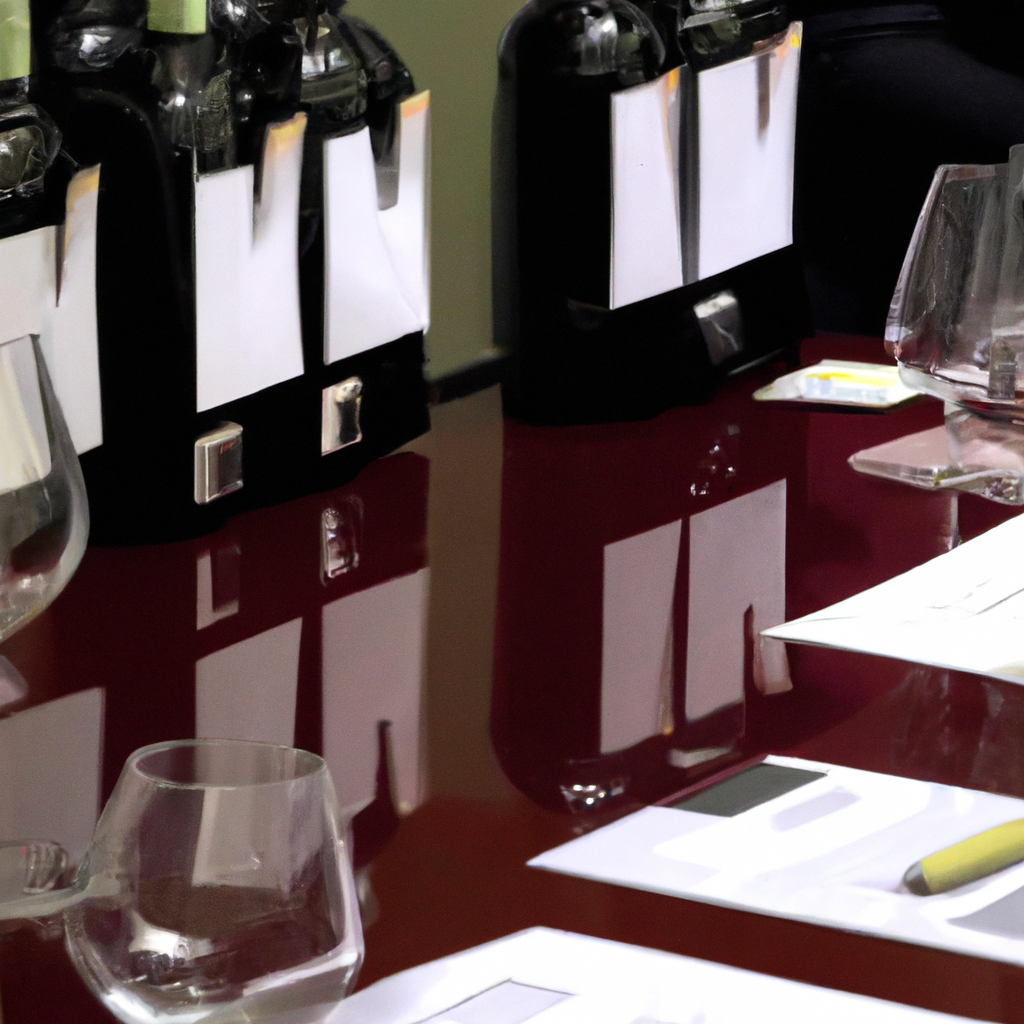The Impact of Wine on Dream Production

The Relationship Between Wine Consumption and Dream Frequency
The Relationship Between Wine Consumption and Dream Frequency
Dreams have long fascinated humans, with their mysterious and often symbolic nature. They have been the subject of countless studies and theories, as researchers strive to understand their purpose and meaning. One area that has recently gained attention is the impact of wine consumption on dream production. Can the glass of wine you enjoy before bed affect the frequency and content of your dreams?
To explore this question, researchers have conducted several studies examining the relationship between wine consumption and dream frequency. One such study, published in the Journal of Sleep Research, surveyed a group of individuals about their alcohol consumption and dream experiences. The results revealed a significant correlation between wine consumption and increased dream frequency.
But why does wine have this effect on dreams? One theory is that alcohol, including wine, disrupts the normal sleep cycle. When we consume alcohol, it acts as a sedative, making us feel drowsy and relaxed. However, it also interferes with the rapid eye movement (REM) sleep, which is the stage of sleep where most dreaming occurs. As a result, when we consume wine before bed, our REM sleep is disrupted, leading to more frequent and vivid dreams.
Another factor that may contribute to the impact of wine on dream production is its effect on brain chemistry. Wine contains a compound called ethanol, which has been shown to alter neurotransmitter levels in the brain. These changes in neurotransmitter activity can influence the content and intensity of dreams. For example, some individuals report experiencing more vivid and emotionally charged dreams after consuming wine.
It is important to note that while wine consumption may increase dream frequency, it does not necessarily guarantee pleasant or positive dreams. In fact, some individuals report experiencing more nightmares or disturbing dreams after drinking wine. This may be due to the disruptive effects of alcohol on the sleep cycle, as well as its impact on brain chemistry. Therefore, it is essential to consider individual differences and personal tolerance when examining the relationship between wine and dream production.
Furthermore, the impact of wine on dream production may vary depending on the amount consumed. Moderate wine consumption, defined as one to two glasses per day, has been associated with various health benefits, including improved cardiovascular health and reduced risk of certain diseases. However, excessive alcohol consumption can have detrimental effects on both physical and mental health, including disrupted sleep patterns and increased risk of sleep disorders.
In conclusion, there is a clear relationship between wine consumption and dream frequency. Wine, like other forms of alcohol, can disrupt the normal sleep cycle and increase the occurrence of dreams. This may be due to its sedative effects and its impact on neurotransmitter activity in the brain. However, the impact of wine on dream production may vary among individuals, and excessive alcohol consumption can have negative effects on sleep quality. Therefore, it is important to consume wine in moderation and be mindful of its potential impact on dream experiences.
Exploring the Effects of Different Types of Wine on Dream Content

The Impact of Wine on Dream Production
Exploring the Effects of Different Types of Wine on Dream Content
Wine has been enjoyed by humans for thousands of years, and its effects on the body and mind have long been a topic of fascination. One area that has received particular attention is the impact of wine on dream production. Many people have reported experiencing vivid and unusual dreams after consuming wine, leading researchers to investigate the relationship between the two.
One of the factors that researchers have focused on is the type of wine consumed. Different types of wine contain varying levels of alcohol and other compounds that can influence dream content. For example, red wine is known to contain higher levels of a compound called melatonin, which is involved in regulating sleep and dreaming. Some studies have suggested that consuming red wine before bed can lead to more intense and memorable dreams.
Another factor that may influence dream production is the amount of wine consumed. While a glass or two of wine may have a relaxing effect and promote better sleep, excessive consumption can disrupt the sleep cycle and lead to fragmented and less restful sleep. This can result in a decrease in dream recall and a less vivid dream experience.
The timing of wine consumption also appears to play a role in dream production. Drinking wine closer to bedtime may increase the likelihood of experiencing vivid dreams, as alcohol can disrupt the REM (rapid eye movement) sleep stage, which is when most dreaming occurs. However, consuming wine too close to bedtime can also lead to disrupted sleep and a decrease in dream recall.
It is important to note that individual differences in metabolism and tolerance to alcohol can also influence the impact of wine on dream production. Some individuals may be more sensitive to the effects of alcohol and experience more pronounced changes in dream content, while others may not notice any significant differences.
While the relationship between wine and dream production is still not fully understood, there are some general patterns that have emerged from the research. For example, many people report experiencing more vivid and memorable dreams after consuming wine, regardless of the type. This may be due to the relaxing and sedative effects of alcohol, which can promote a deeper and more restful sleep.
Additionally, some studies have suggested that certain compounds found in wine, such as resveratrol, may have neuroprotective effects that could potentially enhance dream production. However, more research is needed to fully understand the mechanisms behind these effects and to determine the optimal conditions for promoting positive dream experiences.
In conclusion, the impact of wine on dream production is a complex and multifaceted topic. Different types of wine, the amount consumed, and the timing of consumption can all influence dream content. While some individuals may experience more vivid and memorable dreams after consuming wine, others may not notice any significant changes. Further research is needed to fully understand the relationship between wine and dream production and to explore the potential benefits and drawbacks of wine consumption on sleep and dreaming.
The Influence of Wine on Sleep Quality and Dream Recall
The Influence of Wine on Sleep Quality and Dream Recall
Wine has been enjoyed by humans for thousands of years, and its effects on the body and mind have long been a topic of interest. One area that has received particular attention is the impact of wine on sleep quality and dream production. Many people have reported experiencing vivid and memorable dreams after consuming wine, but what is the science behind this phenomenon?
To understand the influence of wine on sleep and dreams, it is important to first examine the effects of alcohol on the body. Alcohol is a sedative, meaning it has a calming effect on the central nervous system. When consumed in moderate amounts, it can help individuals relax and fall asleep more easily. However, excessive alcohol consumption can disrupt the sleep cycle and lead to poor sleep quality.
Studies have shown that while alcohol can help individuals fall asleep faster, it also reduces the amount of REM (rapid eye movement) sleep they experience. REM sleep is the stage of sleep where dreams occur, and it is essential for cognitive function and emotional well-being. Therefore, a decrease in REM sleep can result in a decrease in dream production and recall.
Interestingly, wine contains a compound called melatonin, which is also naturally produced by the body to regulate sleep-wake cycles. Melatonin is often used as a supplement to improve sleep quality and treat insomnia. Some researchers believe that the melatonin content in wine may contribute to the vivid dreams experienced by individuals who consume it.
In addition to melatonin, wine also contains other compounds that may influence dream production. For example, certain types of wine, such as red wine, contain high levels of antioxidants called polyphenols. These compounds have been found to have neuroprotective effects and may enhance brain function. It is possible that the presence of polyphenols in wine could have a positive impact on dream production and recall.
However, it is important to note that the effects of wine on sleep and dreams can vary greatly from person to person. Factors such as individual tolerance, the amount of wine consumed, and the timing of consumption can all play a role in determining the impact on sleep quality and dream production.
Furthermore, excessive alcohol consumption can have detrimental effects on sleep and overall health. It can lead to sleep disturbances, such as snoring and sleep apnea, and increase the risk of developing sleep disorders. Therefore, it is crucial to consume wine in moderation and be mindful of its potential effects on sleep and dreams.
In conclusion, wine can have both positive and negative effects on sleep quality and dream production. While it may help individuals relax and fall asleep faster, excessive consumption can disrupt the sleep cycle and decrease REM sleep. The presence of compounds such as melatonin and polyphenols in wine may contribute to the vivid dreams experienced by some individuals. However, it is important to consume wine in moderation and be aware of its potential impact on sleep and overall health.



